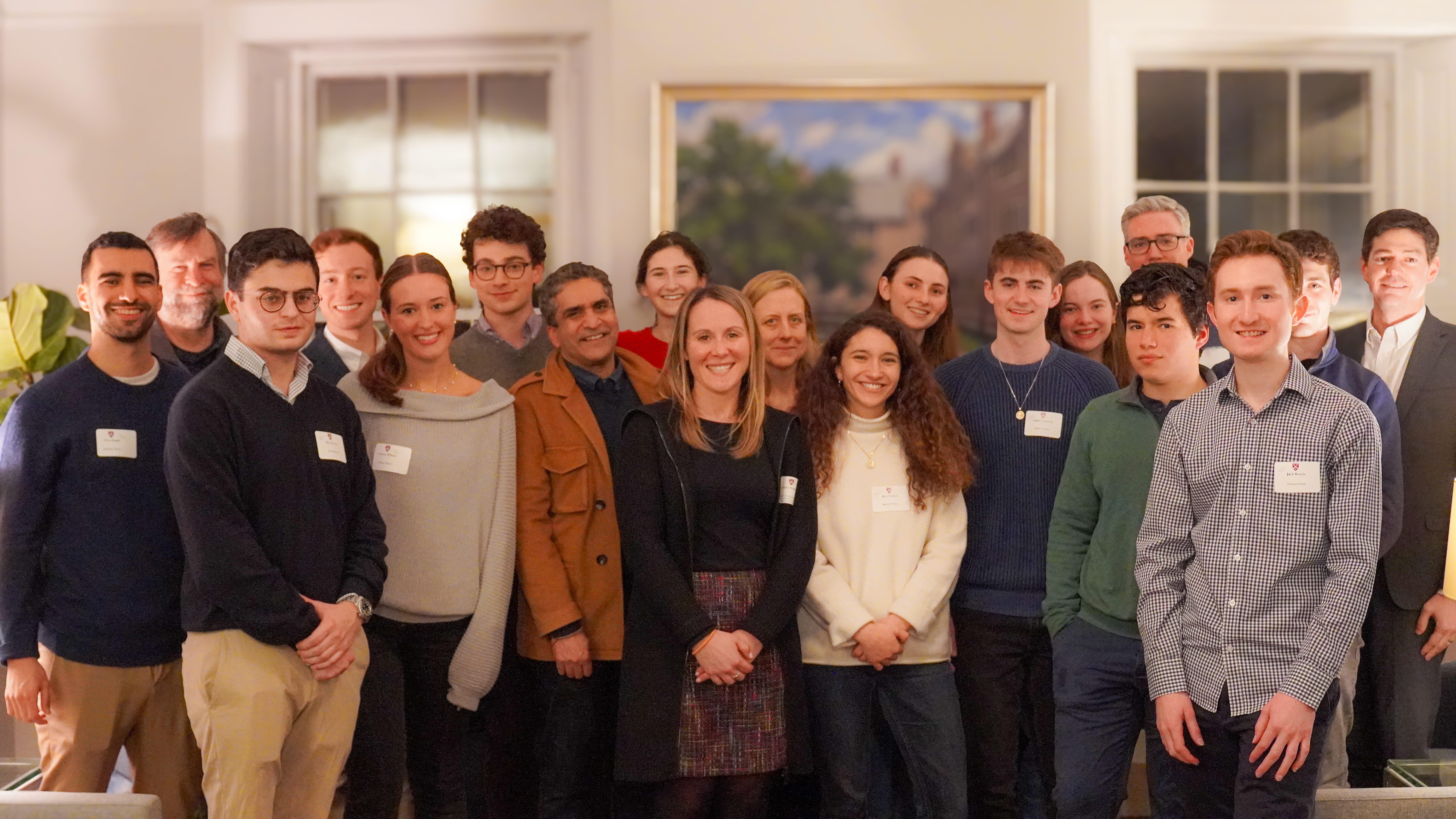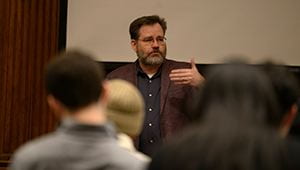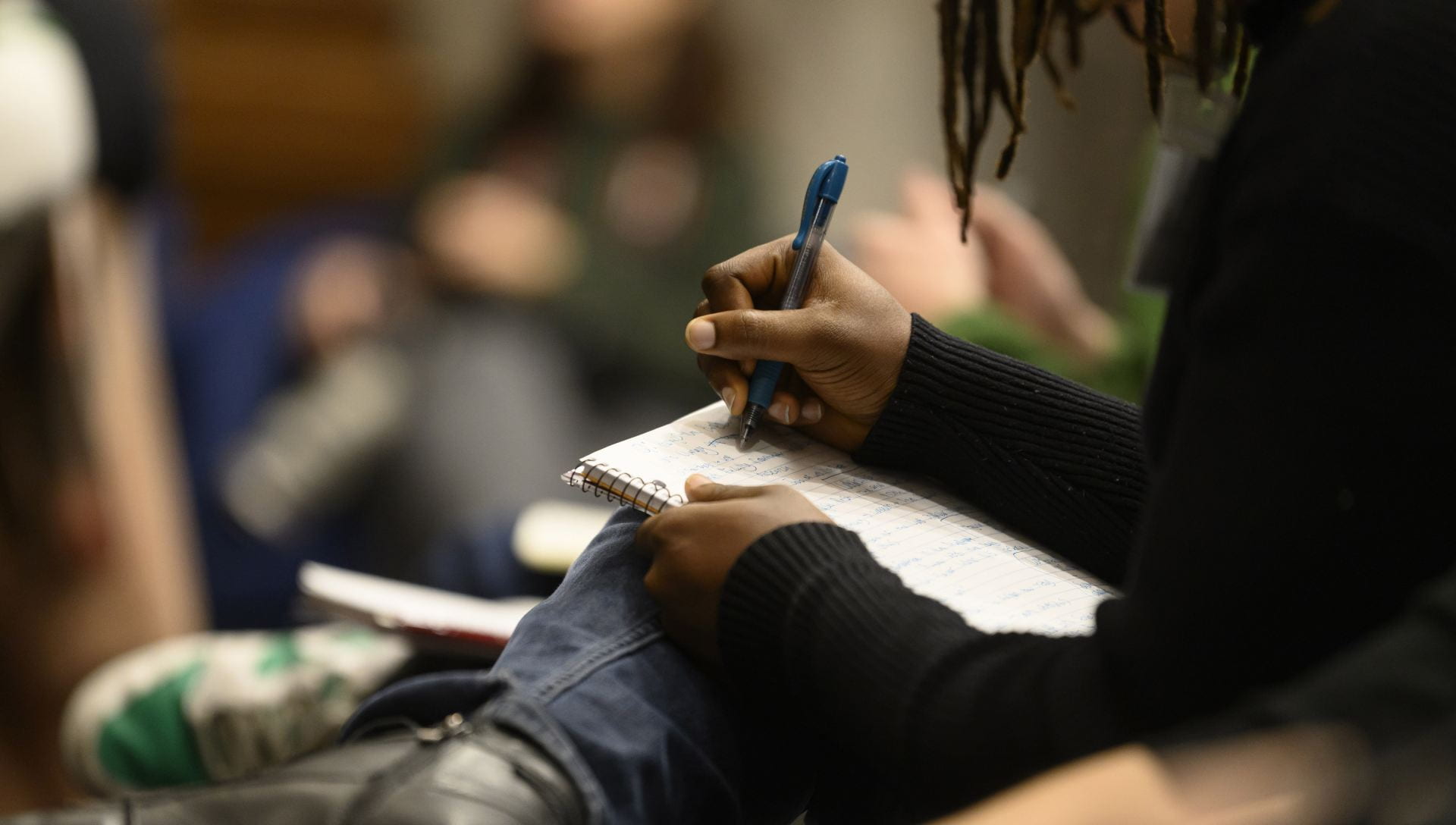Our Commitment
Intellectual Vitality strives to foster humility, respect, and curiosity, while engaging thoughtfully by critiquing ideas, not individuals. It calls for engaging in difficult discussions, discerning intent from interpretation, and discovering that exploring diverse viewpoints often also uncovers shared common ground. It’s not just about learning facts—we seek to create the conditions for cultivating empathic thinkers, attentive listeners, and principled leaders.
Background Video of South asian countries and their people
On This Page
Origins
“Intellectual Vitality” captures the College’s commitment to a culture sustained by academic freedom and enlivened by free expression, open inquiry, and civil discourse. The term was coined by a group of students dissatisfied by the conversations they were having on campus.
They were encountering in their courses challenging ideas and unsettling facts—but the class discussion tended to converge too quickly on a single point of view. They were surrounded in their entryways by people from all around the world and all walks of life—but there was a general reluctance to speak across lines of difference. Because of this, these students felt that they weren’t realizing the full promise of a Harvard College education.
One by one, in 2021, these students began confiding their dissatisfactions in Rakesh Khurana, the Danoff Dean of Harvard College. He listened to them and encouraged them to start talking with one another.
Soon, he and the students were gathering over meals, and they were joined by faculty who had similar concerns. These faculty were also dissatisfied with the conversations happening on campus; they, too, were reluctant to speak about more controversial issues for fear of public condemnation.
Through these meetings, over many months, there emerged a shared sense of what these students and faculty wanted Harvard College to be. In 2023, the students drafted a manifesto calling for “intellectual vitality”, which they defined as a “spirit of rigor, charity, and open exploration in classrooms, student organizations, and social interactions.”
Strategy
The challenge we face is not unique to Harvard College, it can be found on many campuses.
What sets Harvard apart is our response – a deliberate, comprehensive strategy for cultural transformation. We recognize that restoring intellectual vitality demands more than a few public pronouncements and a handful of marquee events. It requires a comprehensive plan for culture change.
That plan is guided by four principles: that we must understand why things went wrong before we try to make them right; that our interventions should be many and mutually reinforcing; that our work should focus not only on the classroom, but also on the houses and yards, on student groups and athletic teams; and that beginnings matter, that we should seek to instill the values of intellectual vitality right from the start.
It all started with an email
A few years back, a group of students told us they wanted more—more depth, more authenticity, more chances to explore curiosity, and to connect across differences. Watch the video to hear how it all began.

affirming values

The values that make intellectual vitality possible are so fundamental that we started taking them for granted. We stopped explaining the importance of free speech and open inquiry, academic freedom and civil discourse. Now, we’ve re-committed to doing so. In the past month alone, the College hosted two summits on academic freedom (one for students and one for staff), the Dean of the College issued a statement on free speech, and the FAS is hosting an array of events promoting civil discourse. Having re-affirmed these values, we now want to ensure that we are continuing to introduce them to each new class of students.
Toward that end, we’re redesigning Visitas and Orientation:
Visitas: Debate between student groups, such as College Democrats and College Republicans, to demonstrate our commitment to free speech
Orientation: Convocation addresses intellectual vitality as experienced in the academic, residential, and co-curricular domains

teaching skills

As demographic sorting increases in the United States and political polarization intensifies, there are fewer and fewer opportunities for people to talk with those whose lives and beliefs differ from their own. Defying these trends, Harvard College remains committed to creating and maintaining communities that are diverse along many dimensions. Students are excited by this, and they’re eager to talk across lines of difference, but they don’t know how.
We’re taking responsibility for teaching them the skills they need to have the kinds of conversations they want:
We will be requiring all incoming students to complete a six-session evidence-based training on the cognitive biases that make dialogue difficult and strategies for overcoming those biases. (Their proctors will complete a more extensive training).
We will then build on this foundation by teaching the specific skills needed in various domains:
academic: Our Expos courses, which all students take, already teach the skills needed for open inquiry and civil discourse, such as gathering evidence and grappling with counterargument. We will redesign these courses to emphasize the connections between those skills and intellectual vitality. We will also offer special “civil discourse” sections for students who are particularly interested in engaging with their peers.
Our Gen Ed courses, which all students take, already encourage students to apply what they’re learning in the classroom to real world issues. We will ensure that the faculty teaching these courses have the tools that they need to inspire robust discussion and reinforce the values of civil discourse. (We will hire a pedagogy expert to work with them on course design).
We will also offer, as electives, new public speaking courses focused on teaching the skills of civil discourse: specifically, the ability to listen to others, as well as to speak for oneself.
residential: Partnering with the Edmond and Lily Safra Center for Ethics, we have trained 27 proctors and tutors to convene conversations on difficult topics in the houses and first-year yards.
co-curricular: We will redesign our trainings for the leaders of athletic teams and other student organizations, to empower them to bring intellectual vitality to these groups as well.

instilling confidence

In a world governed by social media, it can feel risky to express many views. Students and faculty are aware that their words can, at any time, be recorded and widely disseminated; they are afraid of being condemned or harassed. We can’t make these dangers go away, but we can take other steps to re-instill the confidence that enables speech. Such confidence will come in part from policies, from the College’s clear statements defending free speech and academic freedom.
Confidence will also come from practice. Students who are accustomed to speaking across differences in lower-stakes venues and about lower-stakes issues will be more ready to speak and to listen when the stakes are high. We must give students opportunities to practice in all domains of campus life: in the classroom (where discussions are led by a faculty member); in the houses and yards (where discussions take place in an intergenerational community); and in the student associations (where students lead).
To encourage this, we will support ad hoc programming in addition to what is listed above:
We’re inaugurating “Books Open, Gates Unbarred,” a dialogue series where students will gather to hear two faculty discuss issues of contemporary concern.
We’re distributing funds to academic departments and student organizations that want to sponsor intellectual vitality events.
We’re inviting students to discuss what intellectual vitality means for them—how they live it in classrooms, residential communities, dining halls, student organizations, and athletic teams.
Implementation
Phase One: Assess (2021 – spring 2023)
goal: Gauging the extent of the challenge and identifying the obstacles we face.
initiatives: Conducting conversations about the current state of campus discourse with groups of students, faculty, alumni, families, and staff. Surveying graduating seniors to establish a baseline of how many of them feel that they can express themselves freely on campus.
Phase Two: Launch (fall 2023 – spring 2024)
goal: Uniting the Harvard College community around a commitment to intellectual vitality.
initiatives: Introducing the concept of intellectual vitality through a media campaign and marquee events; Training College staff and student leaders on the importance of free speech and academic freedom; Hosting an array of voluntary events that encourage students to have conversations across lines of difference.
Phase Three: Establish (beginning summer 2024)
goal: Ensuring that intellectual vitality pervades all aspects of the Harvard College experience.
initiatives: Foregrounding intellectual vitality at Visitas and Orientation; Teaching the skills of constructive dialogue through pre-orientation training; Teaching the skills of civil discourse in Expository Writing and reinforcing those skills in General Education courses; Teaching how to engage in civil discourse through sponsored programs of the Fellows in Values Engagement; Modeling ways in which student organizations can promote a free and respectful exchange of ideas by establishing operating standards and group norms that encourage honest inquiry, accommodate divergent points of view whenever possible, and create a welcoming and open environment for all students; Publicizing students’ own experiences of intellectual vitality.
Phase Four: Assess (beginning summer 2025)
goal: Confirming whether these interventions are making a difference or whether we should adjust our approach.